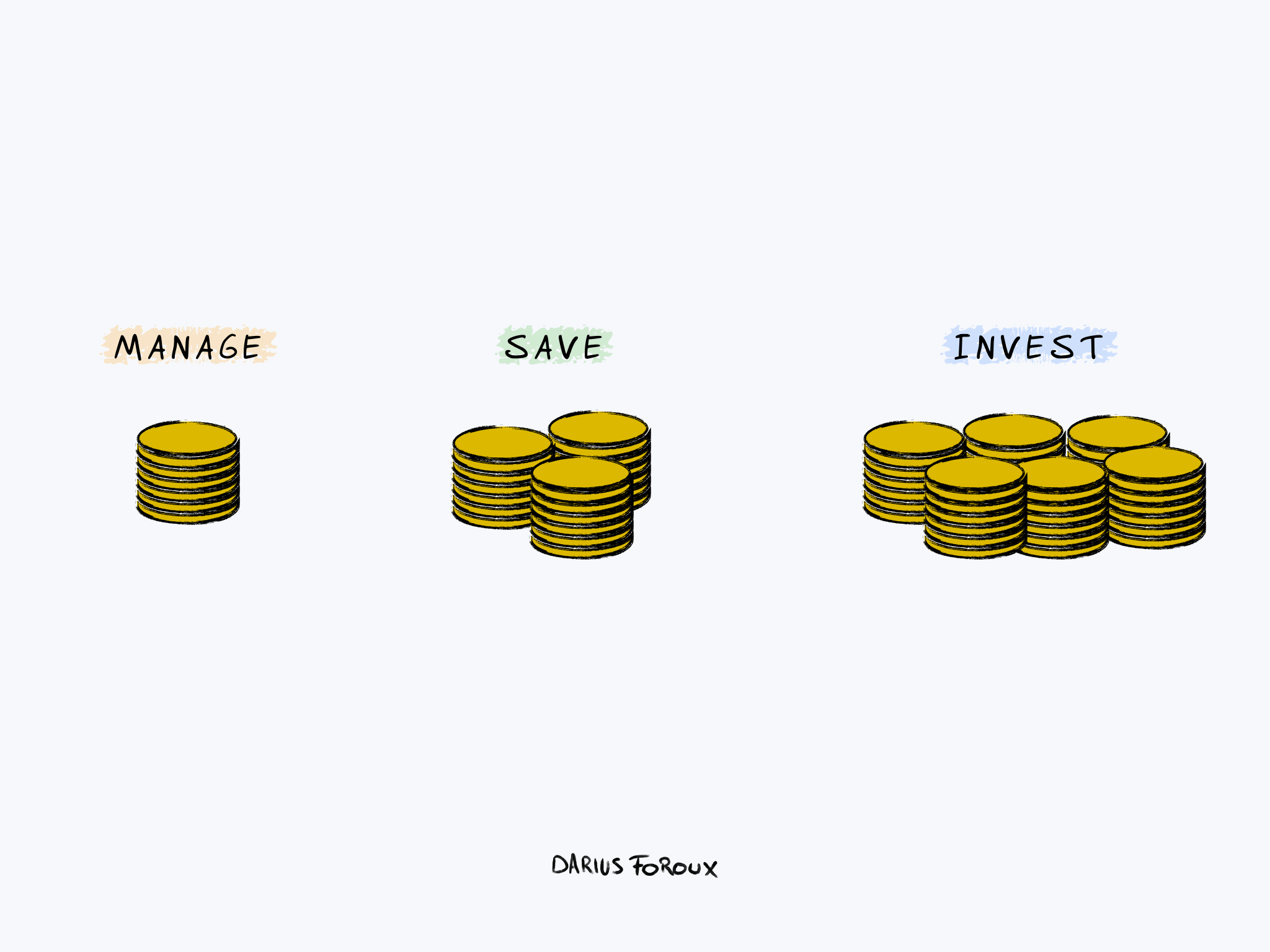There is a stereotype in our society that states that only wealthy people should know about financial terms and principles. This couldn’t be further from the truth. Everyone who deals with money in one way or another should know general financial components. This is where personal finance comes in.
Personal finance encompasses every financial service offered to an individual. The entire personal finance industry deals with saving, investing, and managing an individual’s money.

Components of Personal Finance
There are three components of personal finance: saving, investing, and management.
Saving
The best financial decisions ever made had an element of preempting future events of risk. One needs to think of the bad days sufficiently enough as the good ones. It would be presumptuous to think that one does not need to save for the future.
Here are a few strategies that improve one’s savings streak:
You Need a Budget (YNAB)
Have a stable and static weekly or monthly fund that is well-detailed. Use this budget religiously.
Incorporate the 50/30/20 budget into your income so that 50% goes towards catering for living essentials, 30% is for secondary expenses, and 20% goes to paying debts, savings, and emergency funds.
Start early
As with everything profitable, starting early is more beneficial than joining the bandwagon years later. Preferably, start saving while young. Encourage kids to embrace a saving culture from a young age.
Limit debt
It’s probably time to stop impulse buying. Develop financial discipline that will not allow any purchases above what was already planned. In this same vein, use your credit cards wisely. Remember, a higher credit score means that your access to more money is limited.
Retirement Plans
Instead of being unprepared for life after retirement and relying wholly on Social Security, there are numerous retirement plans in the market today, such as:
- Roth IRAs
- 401(k)
- Individual Retirement Accounts (IRAs)
- Annuities
Investing
Investments work hand-in-hand with insurance; they both provide security for your finances. Investing is an essential aspect of personal finance as it ensures you get more than you initially had.
Asset Allocation
When you invest, you must avidly research the companies you are interested in and determine if your money is safe there. Asset allocation is the entire process of deciding where your money shall be in terms of bonds, stocks, cash, or cash equivalents.
Capital Gain
Buying an asset could be challenging and requires adequate and genuine information. While certain assets o, finally become liabilities, such as vehicles, there are others whose price will only soar from the time of purchase, such as land.
Capital gain is the profit one gets from relinquishing a profitable asset. Investing in the assets with the most likely capital gain is a surefire way to increase one’s wealth.
Management
Monitor Credit Score
One cannot deny the vital and sometimes central role that credit has in our financial lives. You require a credit score of 620 and higher to obtain mortgage financing. Before a lender gives you a loan, they check your credit score and history to know your creditworthiness before they can trust that you will pay your monthly installments faithfully. Also, a higher credit score means you pay less interest on loans. For instance, someone with a credit score of 620 will pay $65,000 more on a $200,000 mortgage than an individual with a FICO credit score of over 760.
Pay off all student loans.
Immediately you get a stable job after school, prioritize clearing your student loans. Distribute the payments to reasonable periods that will not strain your pocket, such as dividing the monthly payment into biweekly payments. Also, take advantage of waivers or discounts to get the best gain.
Principles of Personal Finance
Prioritization
Focus on what brings the most money to you. If you aim to consistently increase your income and limit your expenses, you will end up saving more than you spend.
Assessment
After each financial period, say after a month’s salary, sit down and evaluate your choices; how did you choose to spend your money? If you notice a trend in poor financial practices, it is time to cut them off and proceed with the best practices.
Moreover, before undertaking any new prospect, such as a business or school, weigh the foreseeable profit against possible loss. If it does not make sense, drop the idea and revert your energies elsewhere.
Restraint
Here is where your spending habits come to light. Please do not take credit when you do not need it. Impulsive and compulsive buying are not novelties; and can be dealt with if you are committed to improving. You can also seek professional help if you feel that these disorders are not just skin-deep.
Even after you have met your periodic goals, it is a strong show of restraint not to blow all your money but to increase your savings or investments. It is praiseworthy to congratulate yourself for your efforts once in a while, but it is even more plausible to know when it is enough.
Salient Points
Here are some of the main strategies to ensure you are on top of your personal finance game:
- Monitor your credit score
- Prepare a budget and stick to it
- Create a financial calendar
- Limit your spending habits
- Develop a saving culture
- Become financially literate
- Have a financial vision board
- Set specific financial long-term and short-term goals, and work towards them
- Research and consult professionals before making a financial decision
- Set up an emergency fund
- Have a positive money mindset
- Get an accountability partner, even if it is your bank
- Negotiate more than just your salary
- Know your worth, and defend it
- First, pay the smaller debts
- Be wary about cosigning loans
- Start saving early and immediately
- Plan and save for retirement
- Pay your taxes on time
- Raises mean your savings also increase
- Keep your credit score high and your credit utilization ratio low (below 30%)
- Get a secured credit card and a fixed savings account
- Keep track of interest rates
- Download apps that help you with tracking your money habits
Ultimately, personal finance lies with the individual. Some strategies may work for you but not for someone else. Always find what works for you and what you are willing to make work. It takes grit and a strong sense of self-control to ensure that your financial habits are positive.





